nigeria: a newly emerging economy
1/33
There's no tags or description
Looks like no tags are added yet.
Name | Mastery | Learn | Test | Matching | Spaced |
|---|
No study sessions yet.
34 Terms
Where is Nigeria located?
It is located in western Africa, bordering the countries Benin, Niger, Chad and Cameroon and the Gulf of Guinea to its south.
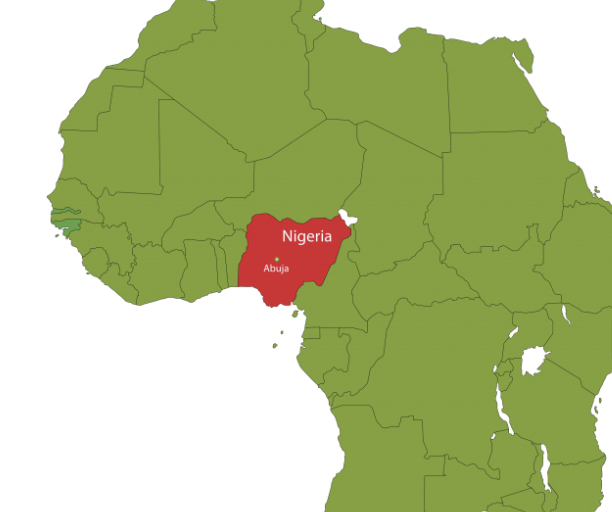
What is the global importance of Nigeria?
World’s 21st-largest economy
2th largest producer of oil, supplying up to 3% of the world’s oil
Lagos, its largest city, is a thriving global economic hub at its centre
It ranks as the 5th largest contributor to UN peacekeeping missions
What is the regional importance of Nigeria?
Fastest growing economy and highest GDP in Africa
Third largest manufacturing sector in the continent
Largest population in the continent
Largest agricultural output and highest number of cattle in Africa
What is the political context of Nigeria’s development?
Nigeria was given independence by the UK in 1960, causing political instability and a civil war to rage from 1967-1970.
→ This caused economic development to slow.
However, since 1999 the country has had a stable government.
→ This has led to economic investment from China, USA and South Africa.
EX: American corporation, Microsoft, is operating in Nigeria.
What is the social context of Nigeria’s development?
Nigeria is a multi-faith and multi-ethnic country, the three largest ethnic groups being the Yoruba, Hausa and Igbo.
→ This has led to regional conflict:
Civil war tore the country as the Igbo-dominated south east tried to become a separate nation
Rise of Islamic fundamentalist group Boko Haram and economic inequality has created religious + ethnic tensions
→ This has reduced investment from abroad and caused a rise in unemployment, hindering economic development
What is the cultural context of Nigeria’s development?
The country’s music, literature and film are enjoyed world wide.
Nigeria as the second largest film industry in the world, known as ‘Nollywood’.
It has won the African cup of Nations 3 times.
What is the environmental context of Nigeria’s development?
Rainfall increases the further south you go down Nigeria.
The very north of the country is semi-desert, near the Sahara and Sahel desert.
The north is covered in savanna grasslands where cotton and millet are grown and cattle graze.
The south is predominantly rainforest where cocoa, palm oil and rubber are produced.
How has Nigeria’s political relationship with the UK changed?
Nigeria was a part of the British Empire, meaning its political links were primarily with the UK and other Empire members.
However, after gaining independence in 1960, Nigeria has remained part of the Commonwealth, maintaining its ties to the UK.
How has Nigeria’s political relationship with African groups and international organisations changed?
It has become a leading member of African political and economic groups as well as international organisation such as the UN.
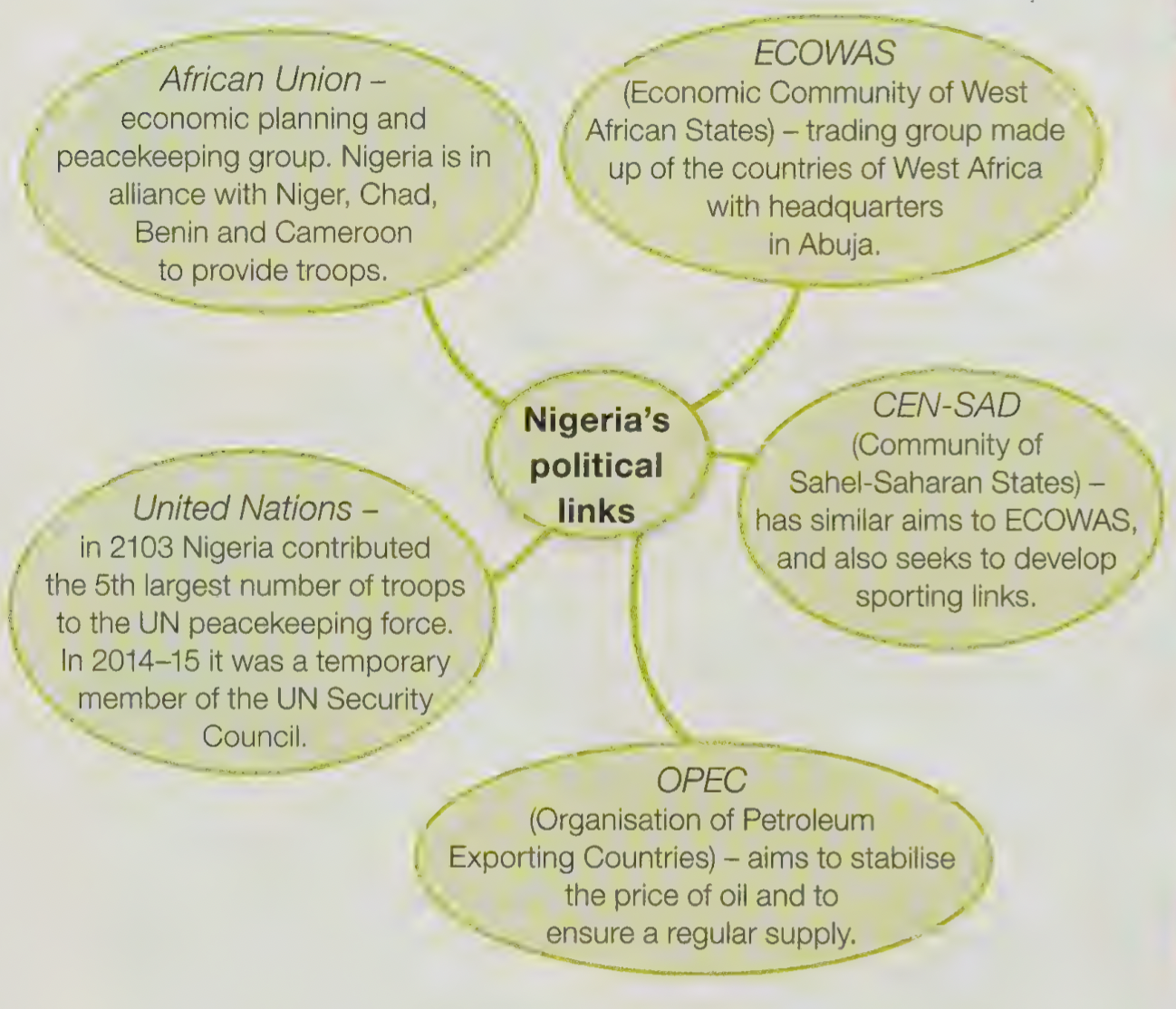
How have Nigeria’s trading relationships changed?
Before, Nigeria was a part of the British empire so mainly traded with the UK, this comprising of enslaved Africans and later palm oil.
Once it gained independence in 1960, it began to export other raw materials to Britain and eventually formed secondary trading relationships with the world’s largest economies - the EU, USA and China.
It has also become member to the Commonwealth and several African trading groups like OPEC and ECOWAS.
What does Nigeria export?
It exports crude and refined petroleum, natural gas, rubber, cocoa and cotton.
Most of Nigeria’s crude oil arrives in India, China, Japan, and South Korea, however previously the USA was its biggest customer.
Around 30 per cent of Nigeria’s cotton is shipped to Australia and 15 per cent to Indonesia.
Meanwhile, cocoa is exported to Barbados for processing.
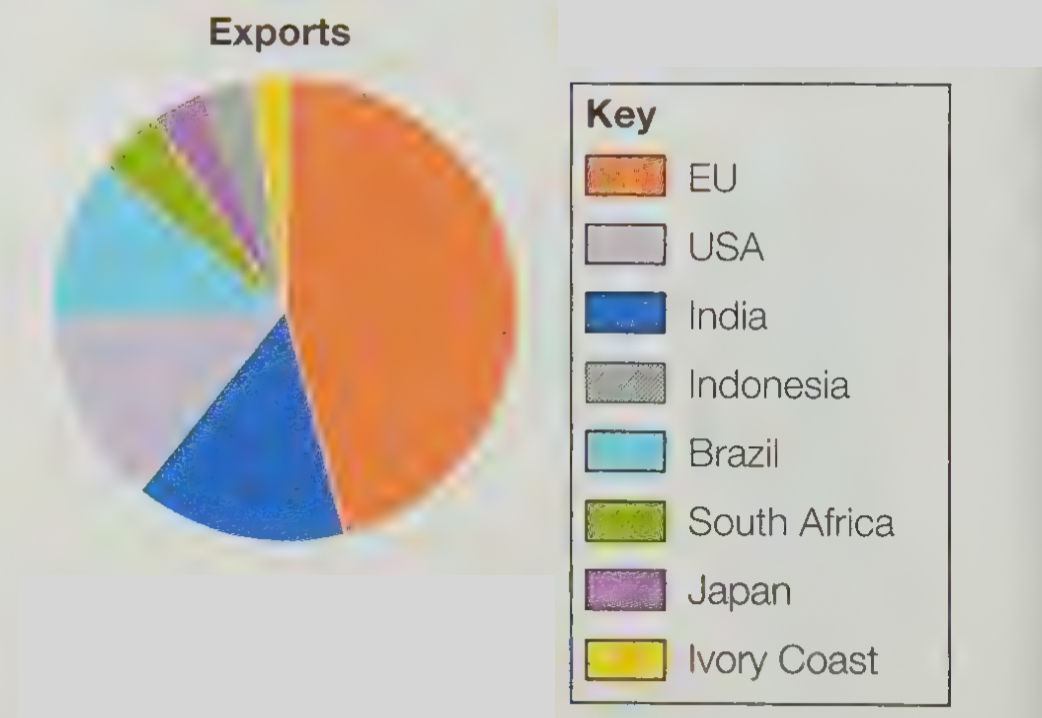
What does Nigeria import?
It imports refined petroleum for the EU and USA, cars from Brazil, mobile phones from China, rice and wheat.
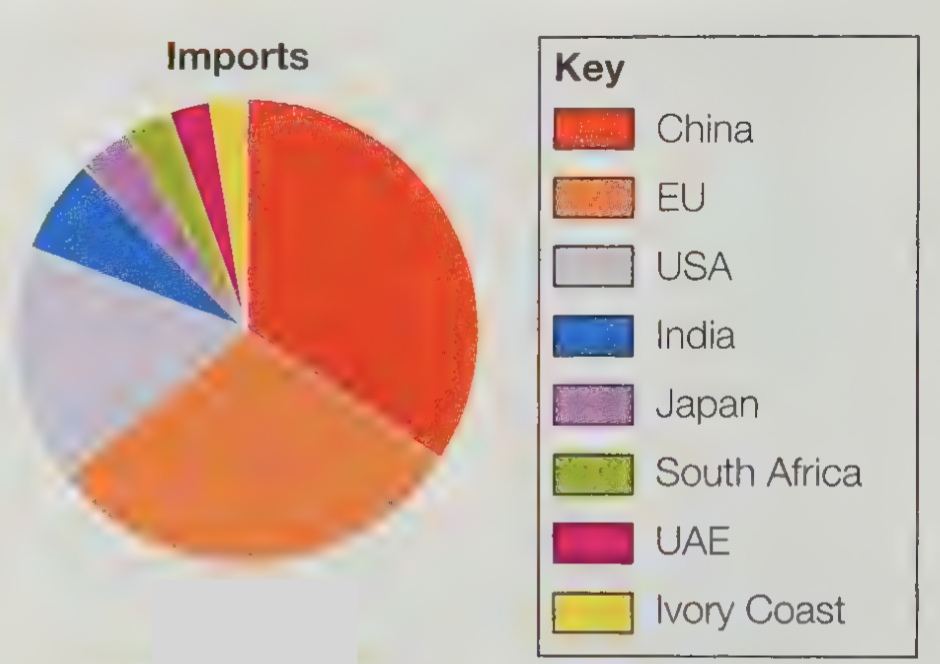
What changes have occurred to Nigeria’s industrial structure making its economy more balanced?
Employment in agriculture has decreased
Employment in manufacturing has increased
Employment in services is on the rise
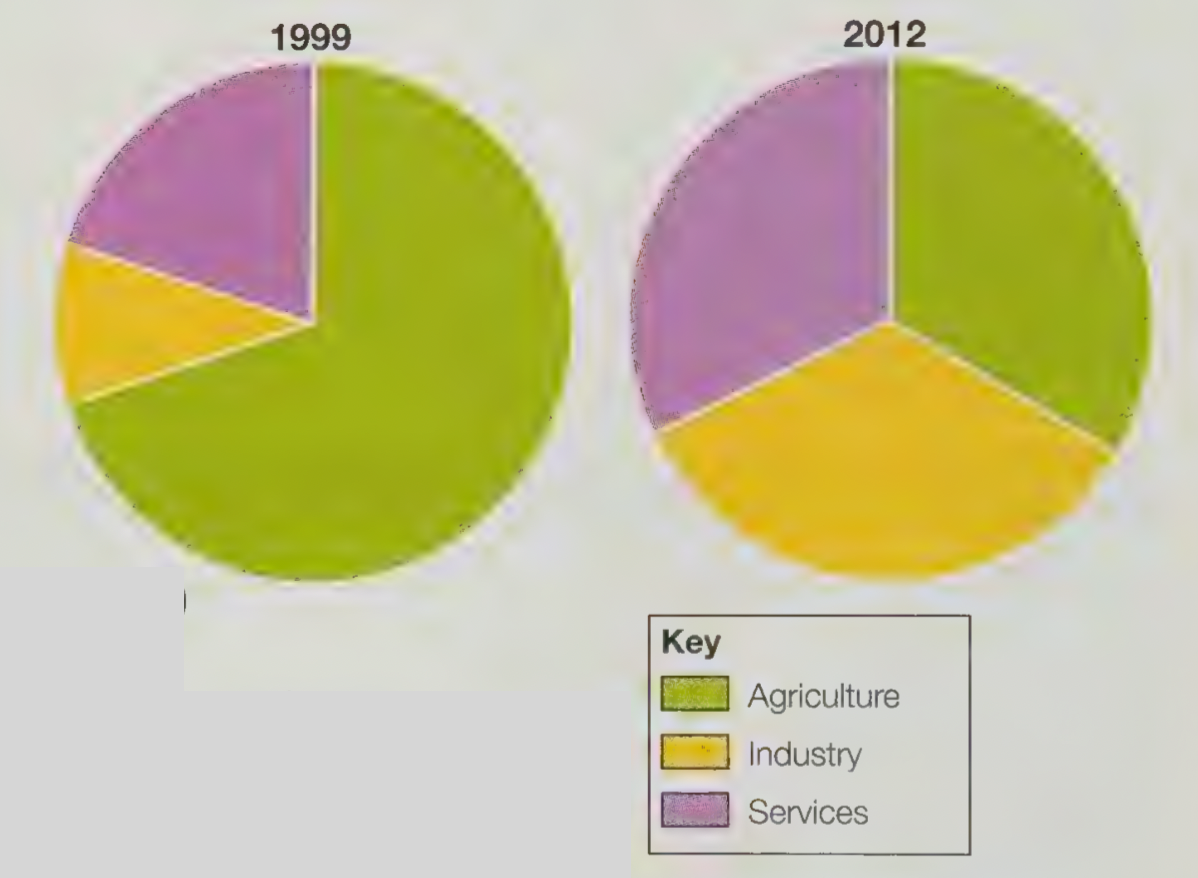
Why has employment in the primary sector decreased?
Due to the rise in the use of farm machinery and the better pay and conditions associated with other sectors of the economy.
Why has employment in the secondary sector increased?
Due to the discovery of oil in the Niger delta - providing jobs in oil production -, cheap labour and a stable government.
Why is employment in the tertiary sector increasing?
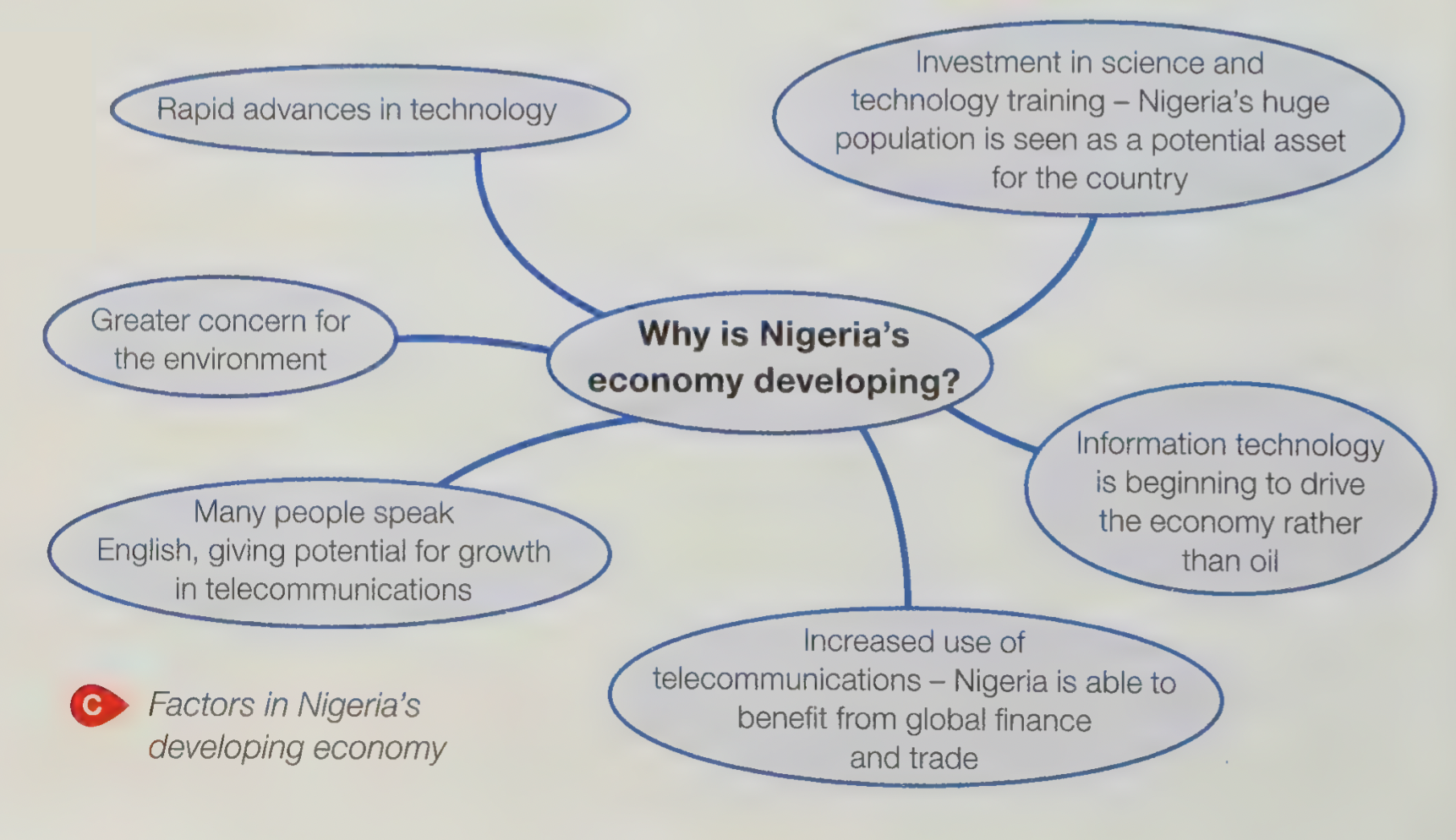
How is the growth in the manufacturing sector stimulating economic development?
Regular paid work gives people have a more secure income, increasing the home market for purchasing products such as electrical appliances, cars, and clothes.
The growth in manufacturing leads to the multiplier effect - when one industry develops, other industries develop to supply parts.
Tax revenue increases as more people are in formal employment.
Foreign investment is attracted by a thriving industrial sector, leading to further economic growth.
Chemical by-products from oil processing have led to the growth of chemical industries - i.e soaps.
What is the name of a TNC that works in Nigeria?
Shell - one of the largest oil companies.
How has Shell benefited Nigeria’s industrial development?
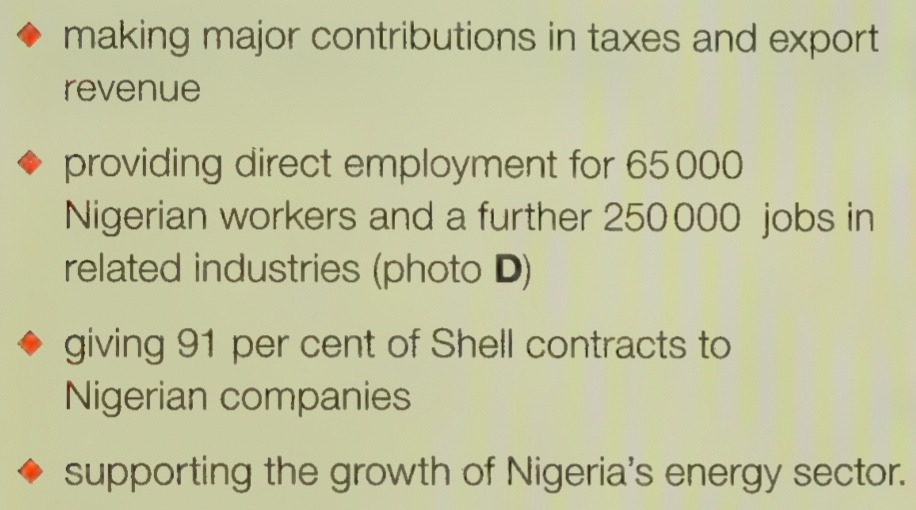
How has Shell’s development in Nigeria as a TNC caused issues?
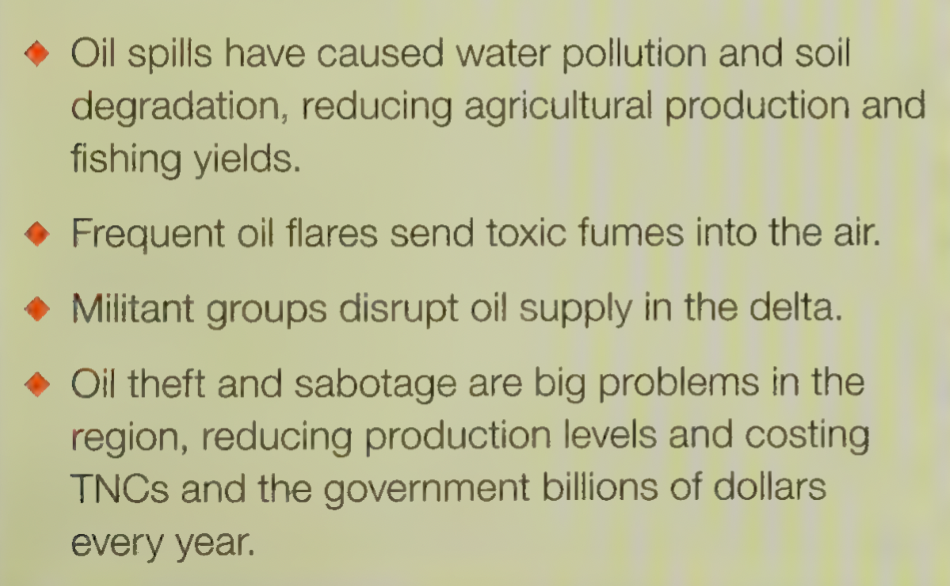
What are the advantages of TNCs?
They provide employment and help people develop new skills
More money is spent in the economy (higher wages + investment)
Companies may invest in local infrastructure and education
Valuable export revenues are earned
What are the disadvantages of TNCs?
Working conditions are sometimes poor
Wages are lower than in the home country of the TNC
Much of the profit generated goes abroad to HICs
Management roles are often assigned to foreign employees brought by the TNC
Why does Nigeria need aid?
Significant inequality of wealth - many live in extreme poverty despite the growth of the economy
Low life expectancy + literacy rates
High birth and infant mortality rate
High death rate from malaria
What is the impact of aid in Nigeria?
Nets for Life project provides education on Malaria and gives mosquito nets to households to prevent the spread of the disease.
World Bank-funded loans to businesses to help diversify the economy away from dependence on oil so that new companies and industries are developed.
The UK government has funded health and HIV programmes that provide health and education in rural areas to help protect people from infection.
What prevents aid being used effectively?
It may also cause a country to become reliant on aid, using it for short-term projects rather than sustainable ones and thus slowing development.

How has industrial development in Nigeria affected the environment?
The fast unregulated growth of industry has to these environmental problems:
Many toxic pollutants discharge into open drains and water channels, posing a danger to public health and damaging ecosystems downstream
There is a widespread emission of poisonous gases that cause respiratory and heart problems while contributing to climate change
80% of Nigeria’s forests have been deforested, leading to soil erosion and the loss of carbon stores
How has urban growth in Nigeria affected the environment?
Urban areas have grown rapidly as Nigeria has developed causing these problems:
The construction of squatter settlements in many cities has destroyed habitats
Services struggling to keep pace with economic growth
Waste disposal and inadequate sanitation have become a major issues due to increased domestic and industrial waste
Traffic congestion which has led to high levels of exhaust emissions
How have mining and oil extraction in Nigeria affected the environment?
Tin mining has resulted in soil erosion and the pollution of water supplies
Oil spills have destroyed marine ecosystems and have caused fires, releasing greenhouse gases into the air and causing respiratory problems in local people
EX: In Bodo 2008 and 2009, there were two large oil spills that devastated the livelihoods of thousands of farmers + fishermen who lived in the swamps around the town.
How has economic development improved people’s quality of life in Nigeria?
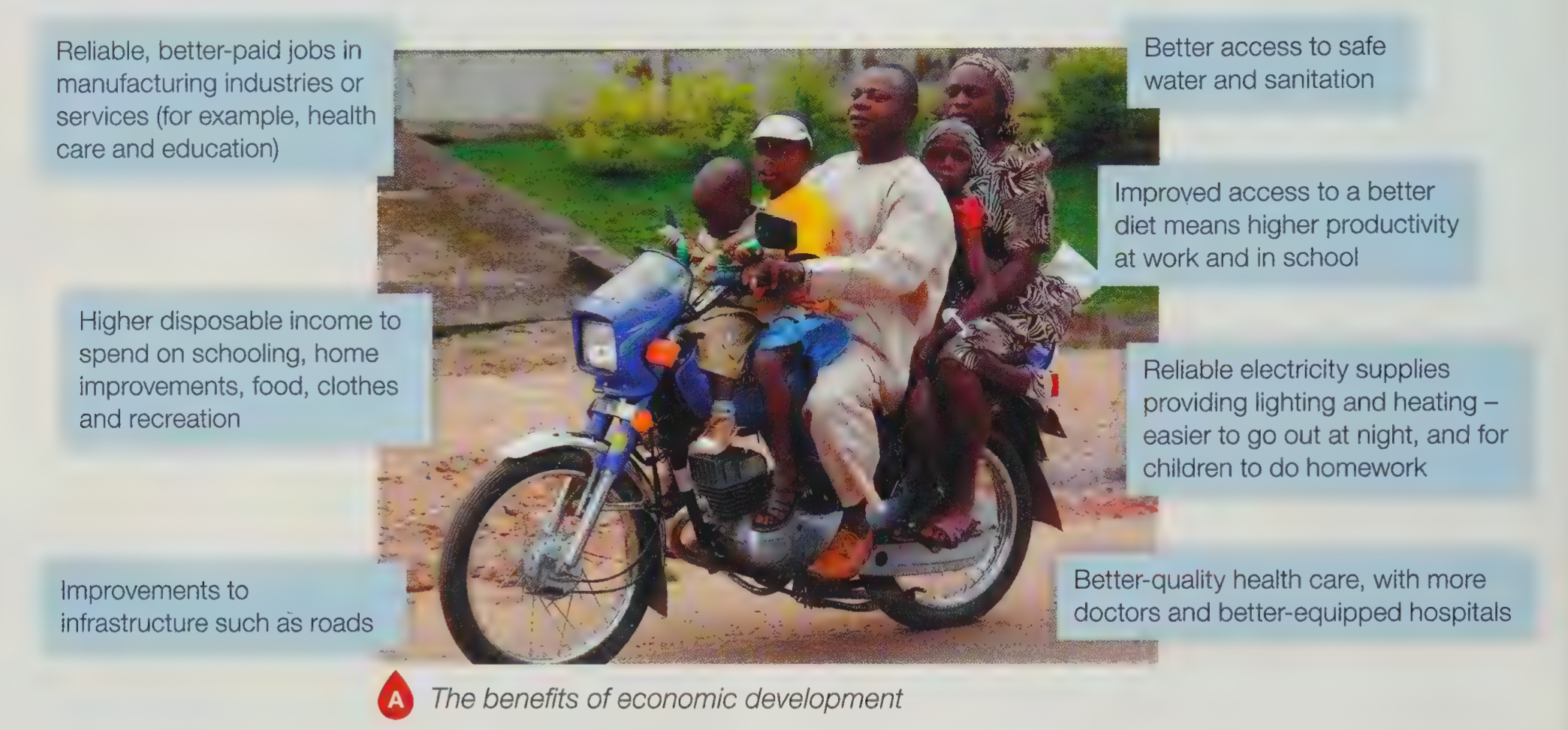
How has Nigeria’s HDI score improved?
It has been increasing steadily since 2005 and in 2011 has had one of the highest average HDI improvements in the world.
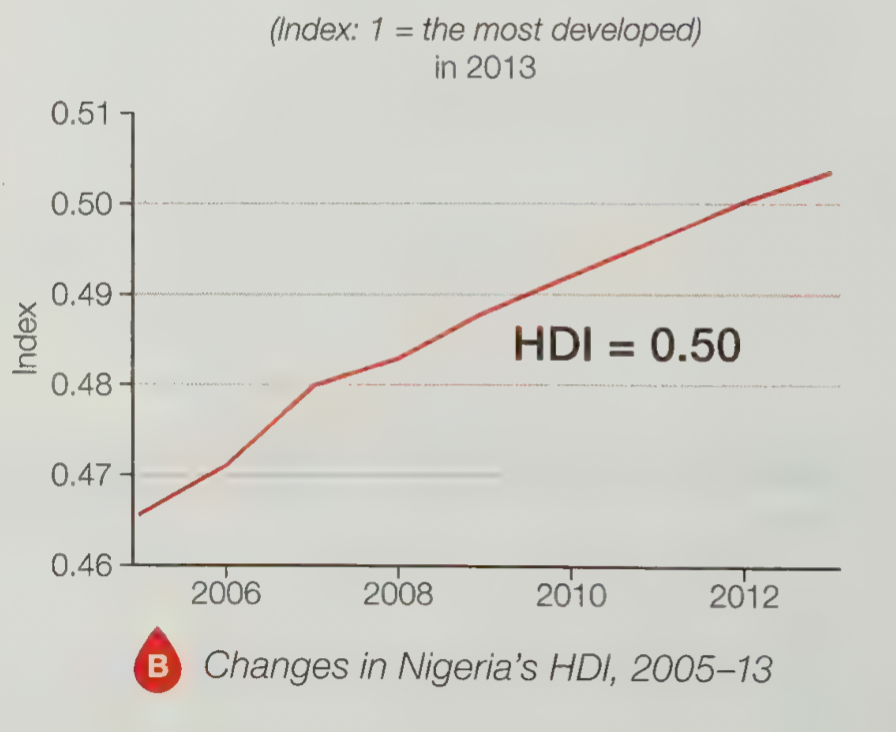
What are the social challenges hindering Nigeria’s quality of life from improving more?
There have been conflicts between tribal and religious groups (i.e. the kidnappings by Boko Haram) which are deterring potential investors and panicking Nigerians.
What are the environmental challenges hindering Nigeria’s quality of life from improving more?
Parts in the far north are at threat of desertification and others suffering from soil erosion due to deforestation
Pests like the tetse fly restrict commercial livestock farming
(Water) pollution from the Niger Delta spills
What are the economic challenges hindering Nigeria’s quality of life from improving more?
The country’s over-dependence on oil as a source of economic development
Number of people in poverty due to the massive disparities in wealth
What are the political challenges hindering Nigeria’s quality of life from improving more?
The need for a lasting stable and corruption-less government.